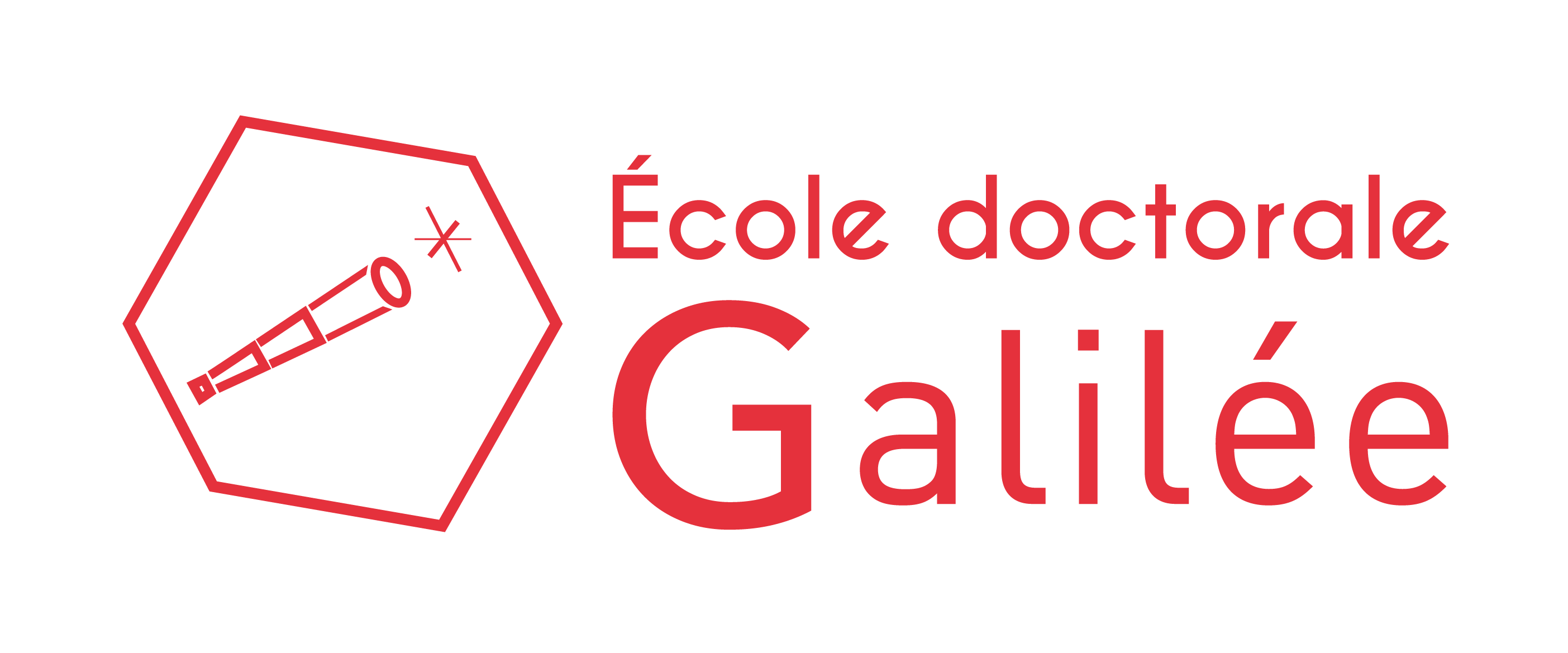Presentation of the doctoral school
Doctoral school 146 « Sciences, Technologies, Santé – Galilée » is a pluridisciplinary doctoral school linked to the University Sorbonne Paris Nord. Its activity resolves around three main disciplinary areas :
- Mathematics, Computer science, Information and communication technology
- Physics, Materials science and processing
- Biology and health sciences, Life sciences, Medical sciences, Ethology.
It offers a training in research in 11 specialties :
- Chemistry
- Ethology
- Computer science
- Biomedical informatic
- Computer science engineering
- Mathematics
- Physics
- Health and public health
- Materials science
- Engineering science
- Biology and health science
On November 6, 2020, the Galilée and Erasme doctoral schools, as well as the Bureau de le Recherche et des Etudes Doctorales (BRED) of the USPN, obtained the ISO 9001 certification awarded by Bureau Veritas (see certificate). This ISO 9001 international standard attests to the implementation by these 3 structures of a quality management system associated with the establishment of rigorous and transparent procedures.
The doctoral school Galilée welcomes about 225 to 250 doctoral students , 40% of whom are in Mathematics-Computer Science, 25% in Physics – Materials science and 35% in Biology and Health Science.
Currently in the doctoral school Galilée, there are more than 400 professors and researchers, researchers (CNRS, INSERM) and engineers of research attached to University Paris 13, among which 240 have been awarded their HDR (habilitation to direct research, the French degree which allows to supervise PhD candidates).
The doctoral school consists of 18 laboratories, 10 of which are supervised by the University Sorbonne Paris Nord. Most of these laboratories are located on two geographical sites: the Villetaneuse campus (Institut Galilée) and the Bobigny campus (UFR SMBH). The laboratories located at the Galilée Institute cover the disciplines of Mathematics (LAGA), Computer Science (LIPN), Treatment and Transport of Information (L2TI), Physics (LPL), Materials Science and Processing (LSPM) and Ethology (LEEC). The CB3S laboratory, which develops research in chemistry, physics and physicochemistry at the interface of life, is bi-site since it is located on the Villetaneuse and Bobigny campuses. The laboratories located at the Bobigny campus work in the fields of Biology-Medicine-Health. These are SIMHEL, LI2P, Hypoxia & Lung and LVTS (Biology, Medicine), EREN (Epidemiology, Public Health) and LIMICS (Medical Informatics) laboratories.
The main missions of the doctoral school are to accompany and organise the training of PhDs. Its main focuses are to :
- offer subject trainings, both interdisciplinary and transversal that are useful to the PhD candidates’ research and professional projects.
- set a recruitment of PhD candidates based on explicit and public criteria funded by the government. Indeed, it does organise the PhD scholarship appliances of the university.
- grants the PhD candidates a pluridisciplinary culture through the organisation of seminars and symposiums.
- develops relationships and meetings with the economic and social realms in order to provide the PhD candidates and PhDs the best means for a better occupational and professional integration.
- monitors and organises the career of PhDs.

